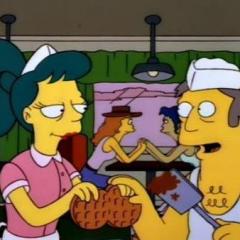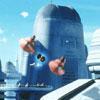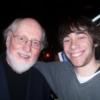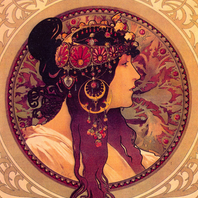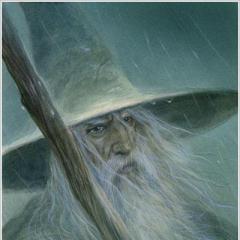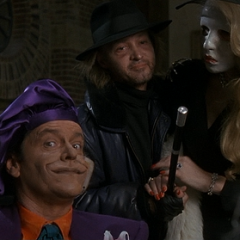-
Posts
139 -
Joined
-
Last visited
Reputation Activity
-
 peter.anschutz got a reaction from Jay in Does anyone think is new TFA music?
peter.anschutz got a reaction from Jay in Does anyone think is new TFA music?
Guys, the car commercial music is NOT Williams, nor Star Wars. It's taken from "Out of this World" from Experience the Adventure. I'm not sure what it is; apparently David Arnold was involved, but Shazam identifies Ben Lasker as the composer of the piece in question.
You can listen to the whole thing here. The portion used in the commercial begins about halfway through.
-
 peter.anschutz got a reaction from Not Mr. Big in Does anyone think is new TFA music?
peter.anschutz got a reaction from Not Mr. Big in Does anyone think is new TFA music?
Guys, the car commercial music is NOT Williams, nor Star Wars. It's taken from "Out of this World" from Experience the Adventure. I'm not sure what it is; apparently David Arnold was involved, but Shazam identifies Ben Lasker as the composer of the piece in question.
You can listen to the whole thing here. The portion used in the commercial begins about halfway through.
-
 peter.anschutz got a reaction from mrbellamy in Does anyone think is new TFA music?
peter.anschutz got a reaction from mrbellamy in Does anyone think is new TFA music?
Guys, the car commercial music is NOT Williams, nor Star Wars. It's taken from "Out of this World" from Experience the Adventure. I'm not sure what it is; apparently David Arnold was involved, but Shazam identifies Ben Lasker as the composer of the piece in question.
You can listen to the whole thing here. The portion used in the commercial begins about halfway through.
-
 peter.anschutz got a reaction from Ricard in Does anyone think is new TFA music?
peter.anschutz got a reaction from Ricard in Does anyone think is new TFA music?
Guys, the car commercial music is NOT Williams, nor Star Wars. It's taken from "Out of this World" from Experience the Adventure. I'm not sure what it is; apparently David Arnold was involved, but Shazam identifies Ben Lasker as the composer of the piece in question.
You can listen to the whole thing here. The portion used in the commercial begins about halfway through.
-
 peter.anschutz got a reaction from Cerebral Cortex in Does anyone think is new TFA music?
peter.anschutz got a reaction from Cerebral Cortex in Does anyone think is new TFA music?
Guys, the car commercial music is NOT Williams, nor Star Wars. It's taken from "Out of this World" from Experience the Adventure. I'm not sure what it is; apparently David Arnold was involved, but Shazam identifies Ben Lasker as the composer of the piece in question.
You can listen to the whole thing here. The portion used in the commercial begins about halfway through.
-
 peter.anschutz got a reaction from mstrox in Star Wars Episode VII: The Force Awakens (JJ Abrams 2015)
peter.anschutz got a reaction from mstrox in Star Wars Episode VII: The Force Awakens (JJ Abrams 2015)
The last time we see the lightsaber in ESB, it's flying over the railing - with Luke's hand still clutching it - and down into the same big room thing that Luke jumps into (and somehow survives?). We never see what actually happens to it, probably because Lucas figured we'd never need it again.
But apparently we do? Apparently there's something ~special~ about this particular lightsaber that warrants its return. We know from ANH that it symbolizes the passing of the torch to the younger generation. Will it serve the same purpose in TFA? Probably.
Fun fact:
The lightsaber in question is the only lightsaber to actually survive the OT. Obi-Wan/Ben's was probably blown up in the first Death Star; Vader's red-bladed saber is lost down the shaft on the second Death Star, the same shaft Luke tosses his green-bladed saber down in defiance of the Emperor, and then they're subsequently blown up as well.
-
 peter.anschutz got a reaction from Bespin in Star Wars Episode VII: The Force Awakens (JJ Abrams 2015)
peter.anschutz got a reaction from Bespin in Star Wars Episode VII: The Force Awakens (JJ Abrams 2015)
The last time we see the lightsaber in ESB, it's flying over the railing - with Luke's hand still clutching it - and down into the same big room thing that Luke jumps into (and somehow survives?). We never see what actually happens to it, probably because Lucas figured we'd never need it again.
But apparently we do? Apparently there's something ~special~ about this particular lightsaber that warrants its return. We know from ANH that it symbolizes the passing of the torch to the younger generation. Will it serve the same purpose in TFA? Probably.
Fun fact:
The lightsaber in question is the only lightsaber to actually survive the OT. Obi-Wan/Ben's was probably blown up in the first Death Star; Vader's red-bladed saber is lost down the shaft on the second Death Star, the same shaft Luke tosses his green-bladed saber down in defiance of the Emperor, and then they're subsequently blown up as well.
-
 peter.anschutz got a reaction from Bespin in I'VE NEVER SEEN "STAR WARS".
peter.anschutz got a reaction from Bespin in I'VE NEVER SEEN "STAR WARS".
I don't go to the theater too often. The last was Jurassic World, but before that I hadn't been to the theater since Skyfall and Titanic 3D three years before. I won't be going to the theater again until Spectre in November and TFA in December, and it'll probably be a few years before I find myself in one again.
-
 peter.anschutz got a reaction from rpvee in Star Wars Episode VII: The Force Awakens (JJ Abrams 2015)
peter.anschutz got a reaction from rpvee in Star Wars Episode VII: The Force Awakens (JJ Abrams 2015)
Not as bad as the Periscope audience, especially the person who said "Hans Zimmer is so talented."
-
 peter.anschutz got a reaction from Lewya in Star Wars Episode VII: The Force Awakens (JJ Abrams 2015)
peter.anschutz got a reaction from Lewya in Star Wars Episode VII: The Force Awakens (JJ Abrams 2015)
I am
-
 peter.anschutz got a reaction from Mari in Concert: Pennsylvania Philharmonic - "Off to the Movies with John Williams"
peter.anschutz got a reaction from Mari in Concert: Pennsylvania Philharmonic - "Off to the Movies with John Williams"
Several weeks ago, the Pennsylvania Philharmonic graciously offered two JWfan reviewers a free ticket to their concert series titled, "Off to the Movies with John Williams: From Star Wars to Harry Potter." Being a resident of Pennsylvania, I accepted the offer for one of the two tickets, attending last night's concert in York, PA. What follows is my review of that performance.
The concert was not so much a showcase of the work of John Williams as it was a tribute to the man himself. If concerts can have a thesis in the same way an academic paper does, the thesis of this concert could easily have been that while John Williams is certainly influenced by those who came before him, he possess an incredible talent for utilizing the entire orchestra to full effect, regardless of the nature of the music, making his work unique.
The concert began with three themes - "Superman March," "Across the Stars", and "Imperial March" - featuring leitmotifs, which Williams employs so well in many of his film scores. The music director, Michael Butterman, explained that the leitmotif began with Wagner's operas, and was brought into film by other composers from that part of Europe; for example, Korngold and Max Steiner. Williams, then, adopted the idea from them.
The next two pieces reached back to Williams' early work in the film industry, specifically his overture from The Cowboys and how he drew inspiration from the great Western themes of Elmer Bernstein (The Magnificent Seven) and Alfred Newman (How the West was Won). The second of these two pieces was "The Great Westerns Suite", featuring themes from the two films just mentioned, as well themes from Silverado (Bruce Broughton) and Dances with Wolves (John Barry). While this piece was obviously not written by Williams, it pays homage to the genera that Williams dabbled with early in his career.
To close out the first half of the concert, the orchestra performed "Harry's Wondrous World", which gets back to the idea of a leitmotif created by Williams, which the successive composers of the Harry Potter franchise carried over into their own works. Following intermission, the orchestra played "Flight to Neverland" from Hook.
The next two pieces again focused on how Williams may have been influenced by earlier film composers. First, the orchestra played "The Shark Theme" from - what else? - Jaws. Just as an aside, I find it interesting how the theme now elicits chuckles from the audience, the complete opposite of its original purpose. The idea Williams employs of alternating notes played in a staccato fashion in order to produce tension was also used by Bernard Harrmann in Hitchcock's thriller Psycho. The orchestra played the "Prelude" to that film to show the connection.
While Williams certainly draws inspiration from the composers who came before him, he is able to blend all these ideas into his own palette. We all know Williams is not limited to one genre; in fact, he's not even limited to film music. This is what separates him from other film composers. He is able to utilize the entire orchestra to create unique music for a wide varied of projects. This is what the remainder of the concert highlighted.
The final four pieces demonstrate Williams' wide range of talent. The first, "Viktor's Tale" from The Terminal, "sounds very Krakozhian", as Michael Butterman put it after conducting the piece, referencing the fictional Eastern European country of Krakozhia created for the film. Next came "Adventures on Earth" from E.T., a rather fanciful piece. Then came a dramatic shift with the third piece, the theme from Schindler's List, which never fails to bring up images of the Holocaust. Finally, the concert closed with another of Williams' famous marches, "The Raiders March" from the Indiana Jones series.
So, rather than simply playing all of Williams most famous pieces (you may have noticed that the Star Wars main title was not played), the concert was actually a musical exposition of how other composers influenced John Williams, and how he used that influence to create his own style; it was kind of like a musical research paper presentation, if you will, with Michael Butterman as the presenter of this thesis, and the orchestra as his musical PowerPoint.
The orchestra itself is a fairly new group whose mission focuses primarily on music education of children in grades 4 through 8 in the region of eastern Pennsylvania. I must admit, I had lowered my expectations for their performance slightly, particularly since I'm accustomed to attending concerts of the well-established Pittsburgh Symphony Orchestra. I am pleased to say, however, that the Pennsylvania Philharmonic's performance exceeded these expectations.
It was clear the musicians enjoyed playing this concert. Several times I saw violinists communicating non-verbally their approval of the orchestra's performance through smiles, winks, and nods to each other. This was especially evident in the more fun pieces to play like The Cowboys overture. I can't say I've ever noticed that obvious chemistry between the musicians in a concert before. There were also several solos featured, most notably Doris Hall-Gulati playing the clarinet flawlessly for "Viktor's Tale", and Concertmaster Genaro Medina for his moving violin solo for Schindler's List. The performance of the orchestra as a whole - with the possible exception of the brass occasionally drowning out the strings/woodwinds who were playing the main melody - was almost album quality. Judging by the "wows" I heard around me after nearly every piece, I think the rest of the audience would agree.
Michael Butterman clearly enjoyed conducting as well. His short talks between most of the pieces (which I've more or less summarized in the section above) were also very interesting. As someone who loves music and the work of John Williams, I found the way Mr. Butterman discussed Williams' style very thought provoking. Fellow JWfans and I are familiar with the charges that Williams plagiarizes other composers (and even himself). The way Mr. Butterman explains it, however, makes clear that Williams has been undeniably influenced by other composers (and who hasn't?), but Williams has his own unique range and style that makes him his own man.
The only real complaint I have is that there was no encore performance. Mr. Butterman and the orchestra took several final bows to cheers and loud applause, but then the house lights came on and the orchestra began packing up without playing just one more piece. Now, I'm not exactly a regular concert-goer, but the handful I've been to all had at least one encore piece; this concert, however, was truly over once they played the last piece listed in the program. I heard a few disappointed "awws" around me.
The fact that we wanted more at the concert's end is clearly indicative of how well the Pennsylvania Philharmonic performed the music of John Williams. To play his challenging music as well as they did is certainly a rewarding experience for the musicians, I could see that on their faces; and to listen to such a fine performance as theirs was an extremely pleasurable experience. If I were in the business of awarding stars for a performance, this one would get four out of five.
-
 peter.anschutz got a reaction from Not Mr. Big in Concert: Pennsylvania Philharmonic - "Off to the Movies with John Williams"
peter.anschutz got a reaction from Not Mr. Big in Concert: Pennsylvania Philharmonic - "Off to the Movies with John Williams"
Several weeks ago, the Pennsylvania Philharmonic graciously offered two JWfan reviewers a free ticket to their concert series titled, "Off to the Movies with John Williams: From Star Wars to Harry Potter." Being a resident of Pennsylvania, I accepted the offer for one of the two tickets, attending last night's concert in York, PA. What follows is my review of that performance.
The concert was not so much a showcase of the work of John Williams as it was a tribute to the man himself. If concerts can have a thesis in the same way an academic paper does, the thesis of this concert could easily have been that while John Williams is certainly influenced by those who came before him, he possess an incredible talent for utilizing the entire orchestra to full effect, regardless of the nature of the music, making his work unique.
The concert began with three themes - "Superman March," "Across the Stars", and "Imperial March" - featuring leitmotifs, which Williams employs so well in many of his film scores. The music director, Michael Butterman, explained that the leitmotif began with Wagner's operas, and was brought into film by other composers from that part of Europe; for example, Korngold and Max Steiner. Williams, then, adopted the idea from them.
The next two pieces reached back to Williams' early work in the film industry, specifically his overture from The Cowboys and how he drew inspiration from the great Western themes of Elmer Bernstein (The Magnificent Seven) and Alfred Newman (How the West was Won). The second of these two pieces was "The Great Westerns Suite", featuring themes from the two films just mentioned, as well themes from Silverado (Bruce Broughton) and Dances with Wolves (John Barry). While this piece was obviously not written by Williams, it pays homage to the genera that Williams dabbled with early in his career.
To close out the first half of the concert, the orchestra performed "Harry's Wondrous World", which gets back to the idea of a leitmotif created by Williams, which the successive composers of the Harry Potter franchise carried over into their own works. Following intermission, the orchestra played "Flight to Neverland" from Hook.
The next two pieces again focused on how Williams may have been influenced by earlier film composers. First, the orchestra played "The Shark Theme" from - what else? - Jaws. Just as an aside, I find it interesting how the theme now elicits chuckles from the audience, the complete opposite of its original purpose. The idea Williams employs of alternating notes played in a staccato fashion in order to produce tension was also used by Bernard Harrmann in Hitchcock's thriller Psycho. The orchestra played the "Prelude" to that film to show the connection.
While Williams certainly draws inspiration from the composers who came before him, he is able to blend all these ideas into his own palette. We all know Williams is not limited to one genre; in fact, he's not even limited to film music. This is what separates him from other film composers. He is able to utilize the entire orchestra to create unique music for a wide varied of projects. This is what the remainder of the concert highlighted.
The final four pieces demonstrate Williams' wide range of talent. The first, "Viktor's Tale" from The Terminal, "sounds very Krakozhian", as Michael Butterman put it after conducting the piece, referencing the fictional Eastern European country of Krakozhia created for the film. Next came "Adventures on Earth" from E.T., a rather fanciful piece. Then came a dramatic shift with the third piece, the theme from Schindler's List, which never fails to bring up images of the Holocaust. Finally, the concert closed with another of Williams' famous marches, "The Raiders March" from the Indiana Jones series.
So, rather than simply playing all of Williams most famous pieces (you may have noticed that the Star Wars main title was not played), the concert was actually a musical exposition of how other composers influenced John Williams, and how he used that influence to create his own style; it was kind of like a musical research paper presentation, if you will, with Michael Butterman as the presenter of this thesis, and the orchestra as his musical PowerPoint.
The orchestra itself is a fairly new group whose mission focuses primarily on music education of children in grades 4 through 8 in the region of eastern Pennsylvania. I must admit, I had lowered my expectations for their performance slightly, particularly since I'm accustomed to attending concerts of the well-established Pittsburgh Symphony Orchestra. I am pleased to say, however, that the Pennsylvania Philharmonic's performance exceeded these expectations.
It was clear the musicians enjoyed playing this concert. Several times I saw violinists communicating non-verbally their approval of the orchestra's performance through smiles, winks, and nods to each other. This was especially evident in the more fun pieces to play like The Cowboys overture. I can't say I've ever noticed that obvious chemistry between the musicians in a concert before. There were also several solos featured, most notably Doris Hall-Gulati playing the clarinet flawlessly for "Viktor's Tale", and Concertmaster Genaro Medina for his moving violin solo for Schindler's List. The performance of the orchestra as a whole - with the possible exception of the brass occasionally drowning out the strings/woodwinds who were playing the main melody - was almost album quality. Judging by the "wows" I heard around me after nearly every piece, I think the rest of the audience would agree.
Michael Butterman clearly enjoyed conducting as well. His short talks between most of the pieces (which I've more or less summarized in the section above) were also very interesting. As someone who loves music and the work of John Williams, I found the way Mr. Butterman discussed Williams' style very thought provoking. Fellow JWfans and I are familiar with the charges that Williams plagiarizes other composers (and even himself). The way Mr. Butterman explains it, however, makes clear that Williams has been undeniably influenced by other composers (and who hasn't?), but Williams has his own unique range and style that makes him his own man.
The only real complaint I have is that there was no encore performance. Mr. Butterman and the orchestra took several final bows to cheers and loud applause, but then the house lights came on and the orchestra began packing up without playing just one more piece. Now, I'm not exactly a regular concert-goer, but the handful I've been to all had at least one encore piece; this concert, however, was truly over once they played the last piece listed in the program. I heard a few disappointed "awws" around me.
The fact that we wanted more at the concert's end is clearly indicative of how well the Pennsylvania Philharmonic performed the music of John Williams. To play his challenging music as well as they did is certainly a rewarding experience for the musicians, I could see that on their faces; and to listen to such a fine performance as theirs was an extremely pleasurable experience. If I were in the business of awarding stars for a performance, this one would get four out of five.
-
 peter.anschutz got a reaction from Incanus in Concert: Pennsylvania Philharmonic - "Off to the Movies with John Williams"
peter.anschutz got a reaction from Incanus in Concert: Pennsylvania Philharmonic - "Off to the Movies with John Williams"
Several weeks ago, the Pennsylvania Philharmonic graciously offered two JWfan reviewers a free ticket to their concert series titled, "Off to the Movies with John Williams: From Star Wars to Harry Potter." Being a resident of Pennsylvania, I accepted the offer for one of the two tickets, attending last night's concert in York, PA. What follows is my review of that performance.
The concert was not so much a showcase of the work of John Williams as it was a tribute to the man himself. If concerts can have a thesis in the same way an academic paper does, the thesis of this concert could easily have been that while John Williams is certainly influenced by those who came before him, he possess an incredible talent for utilizing the entire orchestra to full effect, regardless of the nature of the music, making his work unique.
The concert began with three themes - "Superman March," "Across the Stars", and "Imperial March" - featuring leitmotifs, which Williams employs so well in many of his film scores. The music director, Michael Butterman, explained that the leitmotif began with Wagner's operas, and was brought into film by other composers from that part of Europe; for example, Korngold and Max Steiner. Williams, then, adopted the idea from them.
The next two pieces reached back to Williams' early work in the film industry, specifically his overture from The Cowboys and how he drew inspiration from the great Western themes of Elmer Bernstein (The Magnificent Seven) and Alfred Newman (How the West was Won). The second of these two pieces was "The Great Westerns Suite", featuring themes from the two films just mentioned, as well themes from Silverado (Bruce Broughton) and Dances with Wolves (John Barry). While this piece was obviously not written by Williams, it pays homage to the genera that Williams dabbled with early in his career.
To close out the first half of the concert, the orchestra performed "Harry's Wondrous World", which gets back to the idea of a leitmotif created by Williams, which the successive composers of the Harry Potter franchise carried over into their own works. Following intermission, the orchestra played "Flight to Neverland" from Hook.
The next two pieces again focused on how Williams may have been influenced by earlier film composers. First, the orchestra played "The Shark Theme" from - what else? - Jaws. Just as an aside, I find it interesting how the theme now elicits chuckles from the audience, the complete opposite of its original purpose. The idea Williams employs of alternating notes played in a staccato fashion in order to produce tension was also used by Bernard Harrmann in Hitchcock's thriller Psycho. The orchestra played the "Prelude" to that film to show the connection.
While Williams certainly draws inspiration from the composers who came before him, he is able to blend all these ideas into his own palette. We all know Williams is not limited to one genre; in fact, he's not even limited to film music. This is what separates him from other film composers. He is able to utilize the entire orchestra to create unique music for a wide varied of projects. This is what the remainder of the concert highlighted.
The final four pieces demonstrate Williams' wide range of talent. The first, "Viktor's Tale" from The Terminal, "sounds very Krakozhian", as Michael Butterman put it after conducting the piece, referencing the fictional Eastern European country of Krakozhia created for the film. Next came "Adventures on Earth" from E.T., a rather fanciful piece. Then came a dramatic shift with the third piece, the theme from Schindler's List, which never fails to bring up images of the Holocaust. Finally, the concert closed with another of Williams' famous marches, "The Raiders March" from the Indiana Jones series.
So, rather than simply playing all of Williams most famous pieces (you may have noticed that the Star Wars main title was not played), the concert was actually a musical exposition of how other composers influenced John Williams, and how he used that influence to create his own style; it was kind of like a musical research paper presentation, if you will, with Michael Butterman as the presenter of this thesis, and the orchestra as his musical PowerPoint.
The orchestra itself is a fairly new group whose mission focuses primarily on music education of children in grades 4 through 8 in the region of eastern Pennsylvania. I must admit, I had lowered my expectations for their performance slightly, particularly since I'm accustomed to attending concerts of the well-established Pittsburgh Symphony Orchestra. I am pleased to say, however, that the Pennsylvania Philharmonic's performance exceeded these expectations.
It was clear the musicians enjoyed playing this concert. Several times I saw violinists communicating non-verbally their approval of the orchestra's performance through smiles, winks, and nods to each other. This was especially evident in the more fun pieces to play like The Cowboys overture. I can't say I've ever noticed that obvious chemistry between the musicians in a concert before. There were also several solos featured, most notably Doris Hall-Gulati playing the clarinet flawlessly for "Viktor's Tale", and Concertmaster Genaro Medina for his moving violin solo for Schindler's List. The performance of the orchestra as a whole - with the possible exception of the brass occasionally drowning out the strings/woodwinds who were playing the main melody - was almost album quality. Judging by the "wows" I heard around me after nearly every piece, I think the rest of the audience would agree.
Michael Butterman clearly enjoyed conducting as well. His short talks between most of the pieces (which I've more or less summarized in the section above) were also very interesting. As someone who loves music and the work of John Williams, I found the way Mr. Butterman discussed Williams' style very thought provoking. Fellow JWfans and I are familiar with the charges that Williams plagiarizes other composers (and even himself). The way Mr. Butterman explains it, however, makes clear that Williams has been undeniably influenced by other composers (and who hasn't?), but Williams has his own unique range and style that makes him his own man.
The only real complaint I have is that there was no encore performance. Mr. Butterman and the orchestra took several final bows to cheers and loud applause, but then the house lights came on and the orchestra began packing up without playing just one more piece. Now, I'm not exactly a regular concert-goer, but the handful I've been to all had at least one encore piece; this concert, however, was truly over once they played the last piece listed in the program. I heard a few disappointed "awws" around me.
The fact that we wanted more at the concert's end is clearly indicative of how well the Pennsylvania Philharmonic performed the music of John Williams. To play his challenging music as well as they did is certainly a rewarding experience for the musicians, I could see that on their faces; and to listen to such a fine performance as theirs was an extremely pleasurable experience. If I were in the business of awarding stars for a performance, this one would get four out of five.
-
 peter.anschutz got a reaction from Gruesome Son of a Bitch in 'Star Wars: The Force Awakens' SCORE speculation
peter.anschutz got a reaction from Gruesome Son of a Bitch in 'Star Wars: The Force Awakens' SCORE speculation
Hey guys, I've been a member here for about a year but I've only posted once before. I've been following this forum a lot lately gobbling up every bit of info relating to Williams' scoring The Force Awakens. I went through this entire 20+ page thread last night (I was bored, okay?) to see what you all were saying about the two trailers. I just wanted to give my take (not that it's worth much ), although I see you all have gotten off topic!
Trailer #1 - This is my favorite of the two trailers overall.
Some people were saying the brass sforzando notes (I'm trying to sound smart here) were reminiscent of the Sail Barge Assault cue in ROTJ. I don't think that's the case at all; there's absolutely nothing in that trailer that serves as a callback to that scene except a desert planet, which we now know isn't Tatooine. If we want to compare the score to something, then I think the fast french horn/strings combination is reminiscent of, but not identical to, the french horn part in The Lost World's "The Hunt" track, 0:10-0:20.
I'm not crazy about the recording of the Main Title used at the end. First of all, the trombones sound rather sub-par in the fanfare. I'm hoping that's simply due to lazy mixing since it's only a trailer cue, rather than being indicative of a larger sound quality issue with the LA orchestra (I'm really disappointed the LSO isn't being used). Second, the beefed up bass synth used for the small snippet of the theme is really unnecessary; it almost drowns out the trumpets in my headphones. Overall though, I really like the score for this trailer.
Trailer #2 - I was admittedly a little disappointed when I saw this trailer for the first time.
In fact, my very first impression of the music was that it wasn't John Williams who did it. I really thought (kind of still do) that it was someone who simply cut and pasted prominent OT cues that fit the nostalgia vibe - which they clearly wanted to invoke - and added a few filler sections to combine them into one cue. To me, that one piano note was the first clue it wasn't Williams. As others have said, it's just not Star Warsy at all. Then, once again, there's that synth brass that doesn't really fit with what it's supposedly supporting. And did I detect synth voices too? Perhaps Williams did write most of the cue, and, as others have suggested, someone else came along and added stuff to it to make it more like conventional epic trailer music; perhaps someone working under the old George Lucas adage: faster and more intense!
But who knows, maybe we're just over-analyzing something that is really insignificant in the grand scheme of things. I guess we're all just thirsty for new Williams material (or at least I am)
-
 peter.anschutz got a reaction from Jay in 'Star Wars: The Force Awakens' SCORE speculation
peter.anschutz got a reaction from Jay in 'Star Wars: The Force Awakens' SCORE speculation
Hey guys, I've been a member here for about a year but I've only posted once before. I've been following this forum a lot lately gobbling up every bit of info relating to Williams' scoring The Force Awakens. I went through this entire 20+ page thread last night (I was bored, okay?) to see what you all were saying about the two trailers. I just wanted to give my take (not that it's worth much ), although I see you all have gotten off topic!
Trailer #1 - This is my favorite of the two trailers overall.
Some people were saying the brass sforzando notes (I'm trying to sound smart here) were reminiscent of the Sail Barge Assault cue in ROTJ. I don't think that's the case at all; there's absolutely nothing in that trailer that serves as a callback to that scene except a desert planet, which we now know isn't Tatooine. If we want to compare the score to something, then I think the fast french horn/strings combination is reminiscent of, but not identical to, the french horn part in The Lost World's "The Hunt" track, 0:10-0:20.
I'm not crazy about the recording of the Main Title used at the end. First of all, the trombones sound rather sub-par in the fanfare. I'm hoping that's simply due to lazy mixing since it's only a trailer cue, rather than being indicative of a larger sound quality issue with the LA orchestra (I'm really disappointed the LSO isn't being used). Second, the beefed up bass synth used for the small snippet of the theme is really unnecessary; it almost drowns out the trumpets in my headphones. Overall though, I really like the score for this trailer.
Trailer #2 - I was admittedly a little disappointed when I saw this trailer for the first time.
In fact, my very first impression of the music was that it wasn't John Williams who did it. I really thought (kind of still do) that it was someone who simply cut and pasted prominent OT cues that fit the nostalgia vibe - which they clearly wanted to invoke - and added a few filler sections to combine them into one cue. To me, that one piano note was the first clue it wasn't Williams. As others have said, it's just not Star Warsy at all. Then, once again, there's that synth brass that doesn't really fit with what it's supposedly supporting. And did I detect synth voices too? Perhaps Williams did write most of the cue, and, as others have suggested, someone else came along and added stuff to it to make it more like conventional epic trailer music; perhaps someone working under the old George Lucas adage: faster and more intense!
But who knows, maybe we're just over-analyzing something that is really insignificant in the grand scheme of things. I guess we're all just thirsty for new Williams material (or at least I am)
-
 peter.anschutz got a reaction from Cerebral Cortex in 'Star Wars: The Force Awakens' SCORE speculation
peter.anschutz got a reaction from Cerebral Cortex in 'Star Wars: The Force Awakens' SCORE speculation
Hey guys, I've been a member here for about a year but I've only posted once before. I've been following this forum a lot lately gobbling up every bit of info relating to Williams' scoring The Force Awakens. I went through this entire 20+ page thread last night (I was bored, okay?) to see what you all were saying about the two trailers. I just wanted to give my take (not that it's worth much ), although I see you all have gotten off topic!
Trailer #1 - This is my favorite of the two trailers overall.
Some people were saying the brass sforzando notes (I'm trying to sound smart here) were reminiscent of the Sail Barge Assault cue in ROTJ. I don't think that's the case at all; there's absolutely nothing in that trailer that serves as a callback to that scene except a desert planet, which we now know isn't Tatooine. If we want to compare the score to something, then I think the fast french horn/strings combination is reminiscent of, but not identical to, the french horn part in The Lost World's "The Hunt" track, 0:10-0:20.
I'm not crazy about the recording of the Main Title used at the end. First of all, the trombones sound rather sub-par in the fanfare. I'm hoping that's simply due to lazy mixing since it's only a trailer cue, rather than being indicative of a larger sound quality issue with the LA orchestra (I'm really disappointed the LSO isn't being used). Second, the beefed up bass synth used for the small snippet of the theme is really unnecessary; it almost drowns out the trumpets in my headphones. Overall though, I really like the score for this trailer.
Trailer #2 - I was admittedly a little disappointed when I saw this trailer for the first time.
In fact, my very first impression of the music was that it wasn't John Williams who did it. I really thought (kind of still do) that it was someone who simply cut and pasted prominent OT cues that fit the nostalgia vibe - which they clearly wanted to invoke - and added a few filler sections to combine them into one cue. To me, that one piano note was the first clue it wasn't Williams. As others have said, it's just not Star Warsy at all. Then, once again, there's that synth brass that doesn't really fit with what it's supposedly supporting. And did I detect synth voices too? Perhaps Williams did write most of the cue, and, as others have suggested, someone else came along and added stuff to it to make it more like conventional epic trailer music; perhaps someone working under the old George Lucas adage: faster and more intense!
But who knows, maybe we're just over-analyzing something that is really insignificant in the grand scheme of things. I guess we're all just thirsty for new Williams material (or at least I am)
-
 peter.anschutz got a reaction from Not Mr. Big in 'Star Wars: The Force Awakens' SCORE speculation
peter.anschutz got a reaction from Not Mr. Big in 'Star Wars: The Force Awakens' SCORE speculation
Hey guys, I've been a member here for about a year but I've only posted once before. I've been following this forum a lot lately gobbling up every bit of info relating to Williams' scoring The Force Awakens. I went through this entire 20+ page thread last night (I was bored, okay?) to see what you all were saying about the two trailers. I just wanted to give my take (not that it's worth much ), although I see you all have gotten off topic!
Trailer #1 - This is my favorite of the two trailers overall.
Some people were saying the brass sforzando notes (I'm trying to sound smart here) were reminiscent of the Sail Barge Assault cue in ROTJ. I don't think that's the case at all; there's absolutely nothing in that trailer that serves as a callback to that scene except a desert planet, which we now know isn't Tatooine. If we want to compare the score to something, then I think the fast french horn/strings combination is reminiscent of, but not identical to, the french horn part in The Lost World's "The Hunt" track, 0:10-0:20.
I'm not crazy about the recording of the Main Title used at the end. First of all, the trombones sound rather sub-par in the fanfare. I'm hoping that's simply due to lazy mixing since it's only a trailer cue, rather than being indicative of a larger sound quality issue with the LA orchestra (I'm really disappointed the LSO isn't being used). Second, the beefed up bass synth used for the small snippet of the theme is really unnecessary; it almost drowns out the trumpets in my headphones. Overall though, I really like the score for this trailer.
Trailer #2 - I was admittedly a little disappointed when I saw this trailer for the first time.
In fact, my very first impression of the music was that it wasn't John Williams who did it. I really thought (kind of still do) that it was someone who simply cut and pasted prominent OT cues that fit the nostalgia vibe - which they clearly wanted to invoke - and added a few filler sections to combine them into one cue. To me, that one piano note was the first clue it wasn't Williams. As others have said, it's just not Star Warsy at all. Then, once again, there's that synth brass that doesn't really fit with what it's supposedly supporting. And did I detect synth voices too? Perhaps Williams did write most of the cue, and, as others have suggested, someone else came along and added stuff to it to make it more like conventional epic trailer music; perhaps someone working under the old George Lucas adage: faster and more intense!
But who knows, maybe we're just over-analyzing something that is really insignificant in the grand scheme of things. I guess we're all just thirsty for new Williams material (or at least I am)



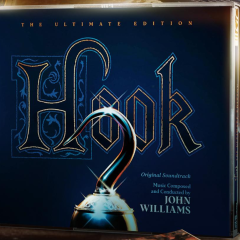
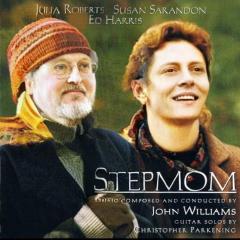
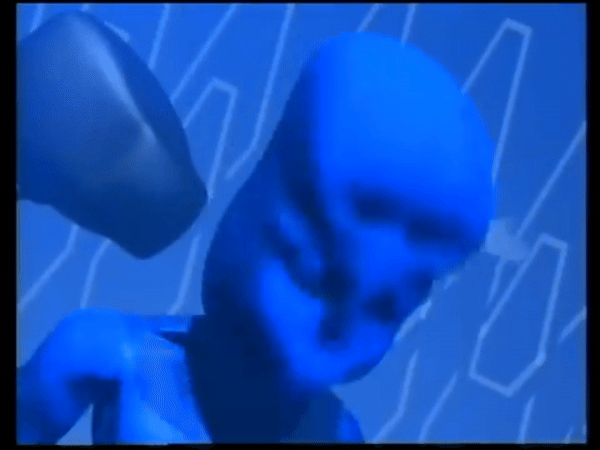
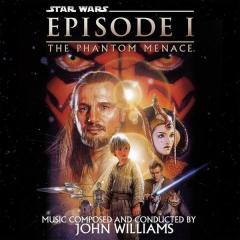
.thumb.gif.df2a851b259fbffe34b18fc1c796422a.gif)
